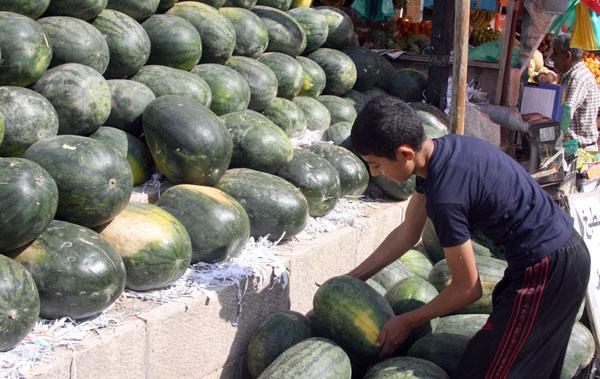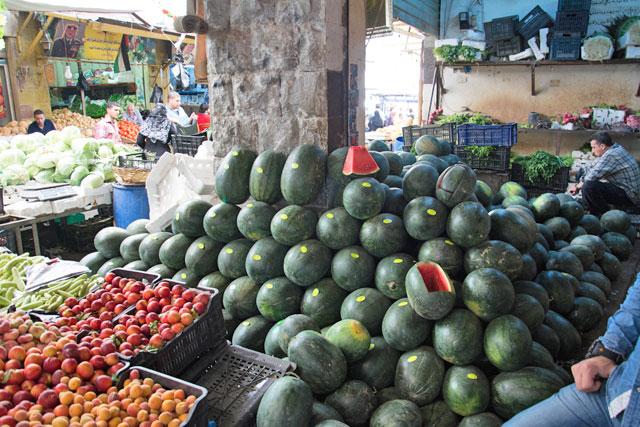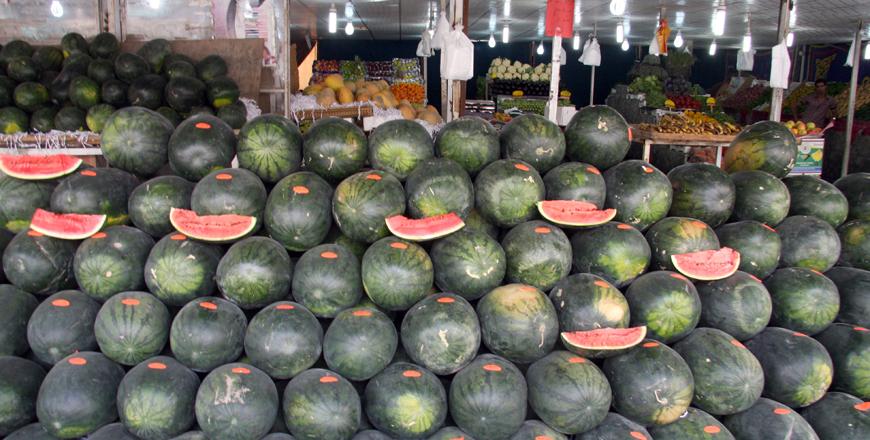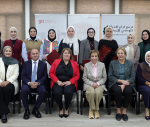You are here
‘Jordan exports 300 tonnes of watermelon per day to Gulf states’
By Hana Namrouqa - May 05,2015 - Last updated at May 05,2015

AMMAN — The Kingdom is exporting 300 tonnes of watermelon daily to Gulf countries, a government official said on Tuesday, expecting the amount to increase as demand is growing.
Agriculture Ministry Spokesperson Nimer Haddadin said demand for local watermelon in the Gulf states has reached record amounts.
“The fruit is also being exported to Iraq but in lower quantities,” Haddadin told The Jordan Times.
He underscored that the Gulf states’ increasing demand for local watermelons indicates they are safe to consume despite rumours that the fruit was injected with hormones.
Jordan Exporters and Producers Association for Fruits and Vegetables President Zuhair Jweihan said reports that local watermelons were injected with hormones are baseless.
“The United Arab Emirates and Qatar, among other Gulf countries, have tested our watermelons and found that they are safe with zero residue from any chemicals,” Jweihan told The Jordan Times.
He noted that the Gulf states’ increasing demand for the fruit is making up for the losses that farmers and exporters incurred after Jordan closed its borders with Syria in early April.
“The majority of our watermelons used to be exported to Lebanon via Syria,” Jweihan said.
A total of 2,800 dunums in Ghor Al Safi in the Jordan Valley are planted annually with watermelons, with each dunum producing five tonnes, according to the Agriculture Ministry.
Some 3,400 dunums of land are planted annually with melons, and each dunum produces four tonnes.
Earlier last month, the ministry destroyed five tonnes of watermelon in the central market because they were white on the inside and not ripe.
The ministry said farmers were not giving watermelons enough time to ripen; therefore, some people complained that the inside of the fruit was white and expressed concern that they were injected with hormones.
The ministry said the watermelons were not injected with hormones, but were picked too early.
In early April, farmers and traders started erecting tents for selling melons in different locations around the capital. The Greater Amman Municipality allows the sale of melons in tents between April 1 and October 30.
Related Articles
The Ministry of Agriculture has destroyed five tonnes of watermelon in the central market for not meeting local standards, a government official said Tuesday.
AMMAN — The Kingdom has exported around 3,000 tonnes of melon and watermelon since the start of this month, the majority of which was to Gul
AMMAN — The Kingdom is exporting 400 tonnes of watermelon and melon daily to several countries, mainly the Gulf states, a government officia



















